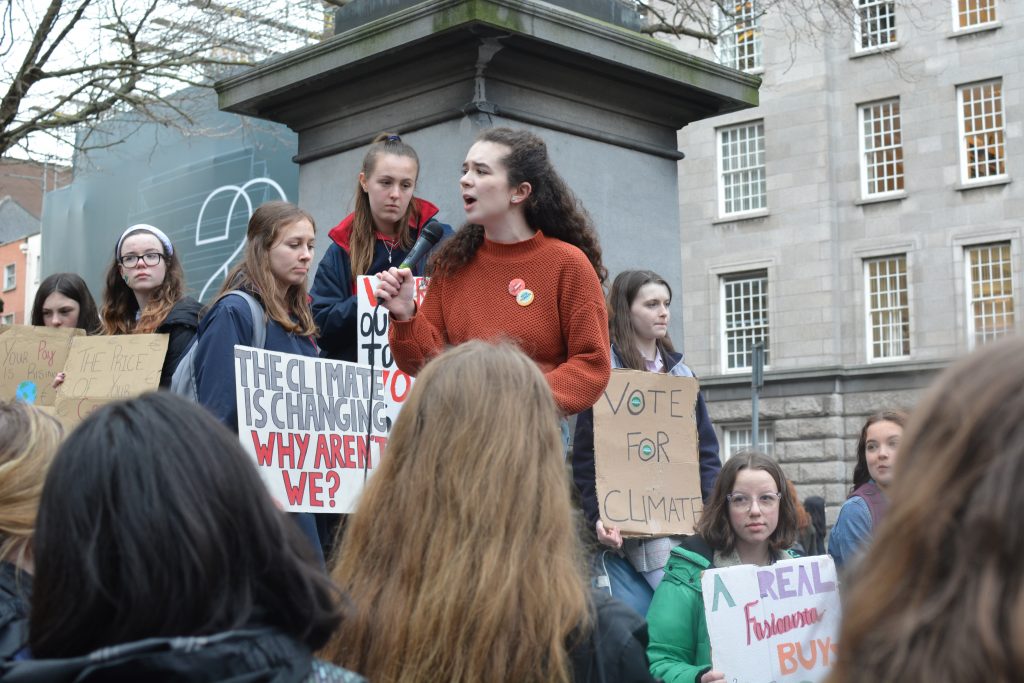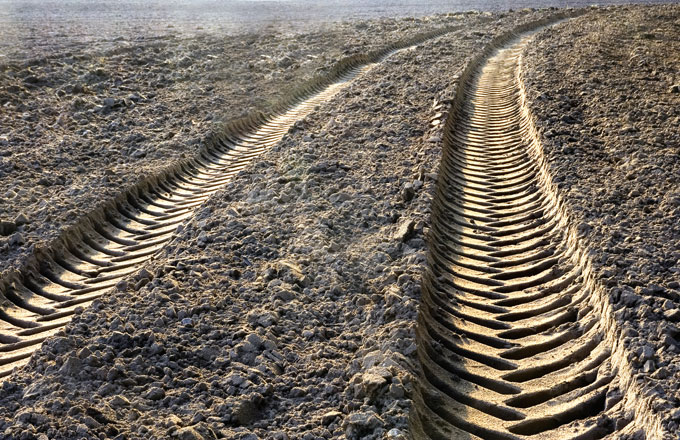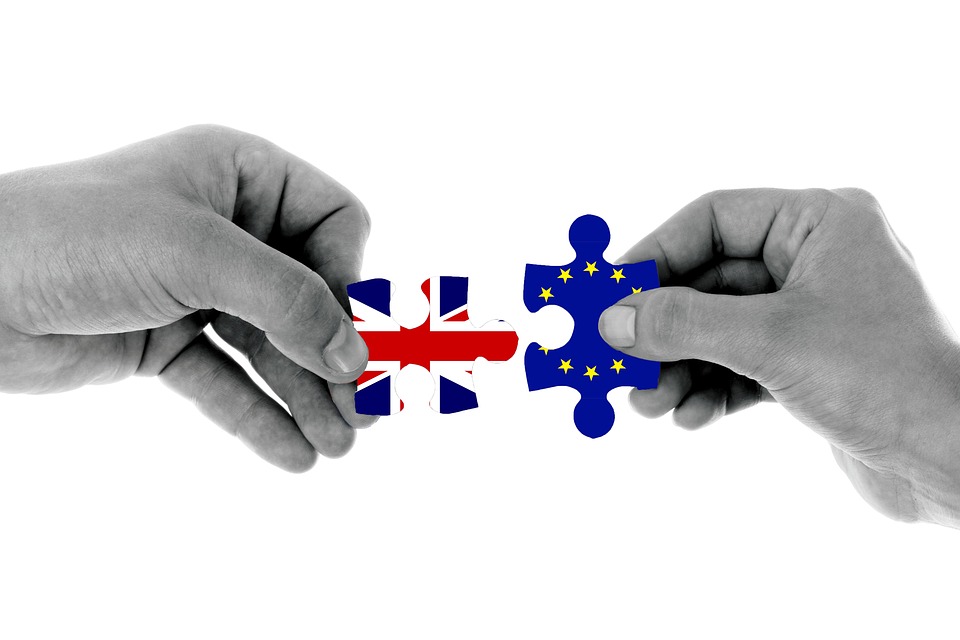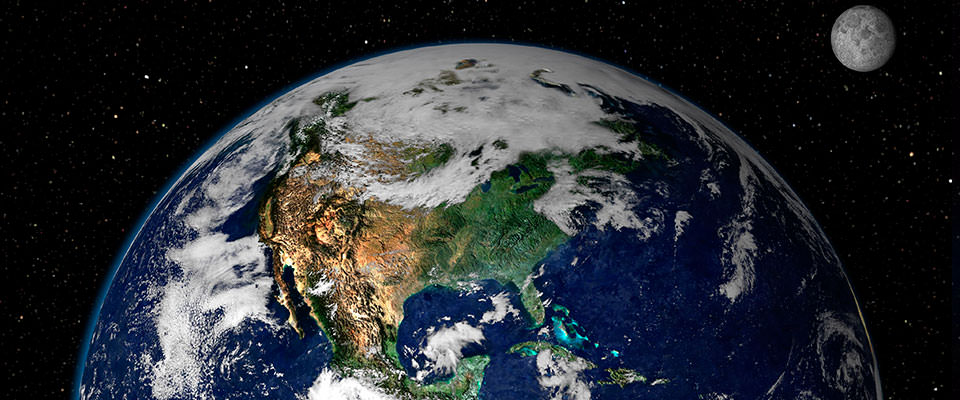The ‘surreal’ Climate Case ruling, one year on

30 July 2021
When the landmark Climate Case was first heard in 2019, the court room looked a lot different from other proceedings taking place that day.
It was, in the words of Dr. Andrew Jackson, like “all of life was there” in the High Court.
All of the seats and floor space was filled. There were Deliveroo drivers with their bags at the door. An entire secondary school class of pupils had filed in. Barristers often had to compete with babies and toddler’s voices while making their arguments. Crammed together and at full attention, attendees seemed all too aware of how high the stakes were.
The case itself had been long in the making. It all started when Dr. Jackson, the lawyer who instigated the case, saw a headline in 2015.
“Dutch Government taken to court on climate change”, it read.
Dr. Jackson was intrigued, and contacted a lawyer on the case the next day. They were generous with their time and sharing information with him.
The partnership turned out to be crucial as they became “pretty much a part of the team,” Climate Case Ireland spokesperson Clodagh Daly recalled.
Fast forward two years, and Dr. Jackson, Clodagh and others start building a case with Friends of the Irish Environment. They established both the legal arguments and garnered public support for what would become Climate Case Ireland.
By the time it made its way to the High Court in 2019, over 16,000 people had pledged their support through an online petition. Support only continued to build when the case found itself in the Supreme Court last summer.
You could count on one hand the number of people physically before the Supreme Court when the ruling was delivered remotely on 31 July 2020 due to the ongoing pandemic. One justice after another voiced their judgment. The climate case had won unanimously in the highest court of the land.
“A moment of hope and inspiration”
A year on, the legacy spans well beyond the court ruling that the 2017 National Mitigation Plan fell ‘well short’ of what was required by law.
What campaigners called a “surreal, moving, joyous, and powerful” decision recognised the government’s responsibility to act on the climate crisis. It illustrated what is possible when committed individuals come together. This was a massive win for the climate movement.
“We became the second case in the world whereby the highest national court of law required the Government to revise its climate policy and revise the ambition of its climate policy because it was inadequate and the court decided that that was unlawful,” Clodagh told The Green News.
Despite having known for a very long time that it had a moral imperative to act on the climate crisis, the Irish Government had “failed to take action”, according to Clodagh.
At the time, Ireland was the second worst performing country in the EU regarding climate action and had the third highest emissions per person. “It was really, really dire,” Clodagh remembered.
So, motivated by poor performance and inspired by the Dutch success in the courts, Clodagh said they set out to see if “strategic litigation could really have a transformative role in Ireland.”
Mounting a challenge under the National Mitigation Plan was a time-sensitive opportunity.
“If a challenge wasn’t brought up within three months of the plan being adopted, then it would conceivably be another five years until another opportunity to mount a systemic challenge would arise,” Dr. Jackson said.
The arguments they presented were three-fold. First, they argued that the making of this plan didn’t comply with the Climate Act of 2015. Secondly, it’s unconstitutional. And thirdly, it breaches rights under the European Convention on Human Rights.
With these arguments solidified, Friends of the Irish Environment (FIE) stepped up as a ligate. The organisation’s Director, Tony Lowes, was crucial in backing the case as he said there are “solicitors and barristers who really want things to change, who really want this to happen, but who cannot go in on their own. They need a litigate.”
Seeing an opportunity for a focal point for the climate movement to coalesce, they made efforts to build a public campaign. A website, social media and petition was made for people to show their support of the case.
Armed with their arguments, a litigate and growing public support, two additional legal developments further aided their case.
First, the High Court agreed with an argument in a different FIE case, that there can be a right read into the constitution, consistent with human dignity.
Secondly the decision in the Dutch case established an infringement on human rights. So Dr. Jackson said, it went from being not just an inspiration but also potentially “a precedent for the argument that we were making.”
Only the Urgenda case in the Netherlands and the Dejusticia case in Colombia preceded Ireland in bringing a climate case to the highest court, making Climate Case Ireland’s the third of its kind in the world.
Ultimately, the case was won the grounds that the National Mitigation Plan violated Ireland’s 2015 Climate Act by failing to specify how emissions would be reduced. A new plan would have to be drawn up and take its place.
The decision represented the case’s “most rewarding moment and [its] happiest day,” according to Tony Lowes.
What happens next
Since then, campaigners say it has created momentum.
“There’s been a lot of moments where you feel like there’s not a lot of hope or you feel like nothing is really changing from like the Irish government standpoint and separate legislation.
So, when you see people came together and made that happen on the national level, it just injects so much hope, momentum, fire and it’s a spark,” youth climate activist Beth Doherty told The Green News.
The experience of both helping out with the case and learning from it has even inspired her to pursue a career in law.
“I wanted to follow that path of creating change in this way and start challenging what seems as the status quo and what’s accepted in order to make a change,” Beth said.

Beyond inspiring individuals, the case has international impacts. Most recently, the highest court in Germany repeatedly cited the Irish case in its finding that the German government must do more to address the climate crisis.
“We now see a firmly established dialogue, I think, Europe’s highest courts in these systemic climate cases, such that litigation that is today, hailed as landmark might perhaps tomorrow be viewed as the routine application of climate law principles,” Dr. Jackson noted.
Within Ireland, the next step from the campaign is to see a Citizen’s Assembly in biodiversity and work to give a constitutional right to the environment.
The Dáil declared a climate and biodiversity emergency in May 2019, and with that motion set its intention to hold such an assembly. Over two years later, it still hasn’t happened.
On an international level, Ireland has co-signed to a statement to the UN Human Rights Council, committed to the right to a ‘safe, clean, healthy and sustainable’ environment. Climate Case Ireland Argues that the same conversation should be happening on a national level.
Friends of the Irish Environment are also working for a Citizen’s Assembly and a constitutional right, but since the landmark case, they’ve continued taking cases. Currently they are working on several other cases related to Marine Protected Areas (MPAs), peat removal, fisheries, legal aid to NGOs and policies on data centres.
And although the Government welcomed the decision from the supreme court at the time, they have yet complied with the court’s decision, according to Climate Case Ireland, as they are yet to see the new statutory plan as to how emissions will be reduced further in the short term.
Further frustrations the campaign has with the Government are related to weaknesses in the recently passed Climate Bill. There are delays to reduce emissions in the short-term, as the Climate Change Advisory Council is not in a position to make carbon budgets until other regulations are in place.
Beth echoed these frustrations with the legislation, citing the need for a better emphasis on just transition, more ambitious targets and more engagement with people on the ground.
“We need to be focusing on improving it,” Beth Doherty urged. “The Climate Case happened for a reason. It happened because our climate action legislation was not good enough. So now we actually take that and improve it in good faith.”
So Climate Case Ireland will continue its fight, according to Clodagh Daly, who said that they will “continue to be holding the government accountable in to deliver, actually commensurate with what’s required in terms of science, but also in terms of justice and equity.”
The same applies to Dr. Jackson. Six years have passed since he first read that fateful headline, and his sights are already set on the next challenge.
“It’s really heartening, I think, to see those ripple effects,” he said.
“But it’s still a huge amount of work to do.”
By Sam Starkey







